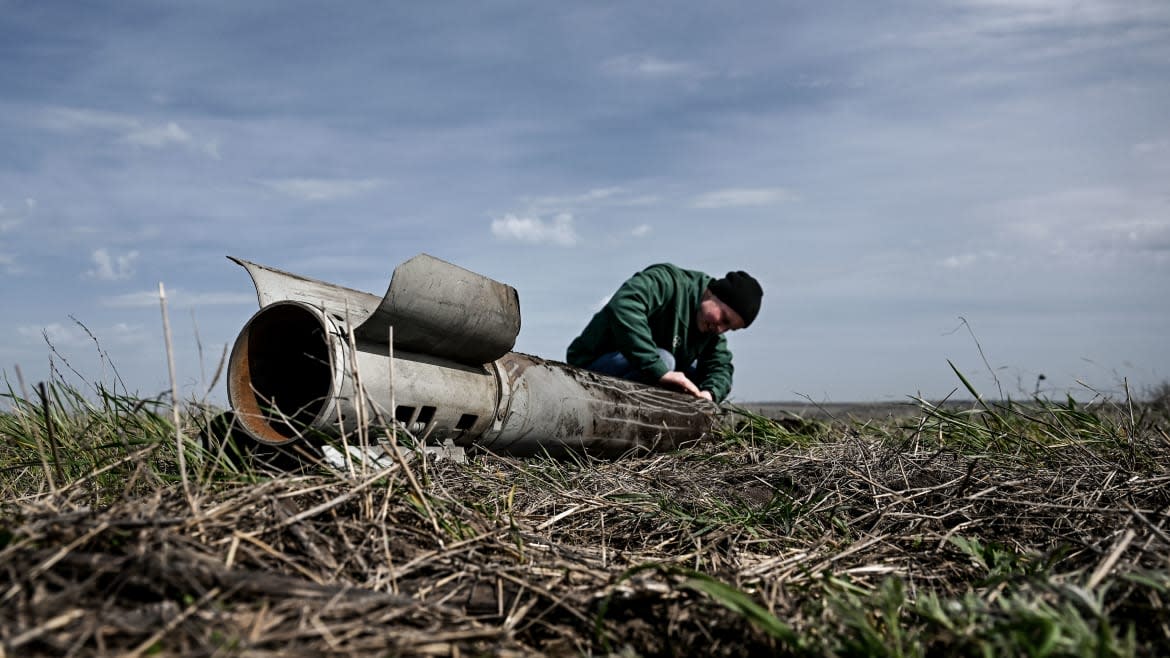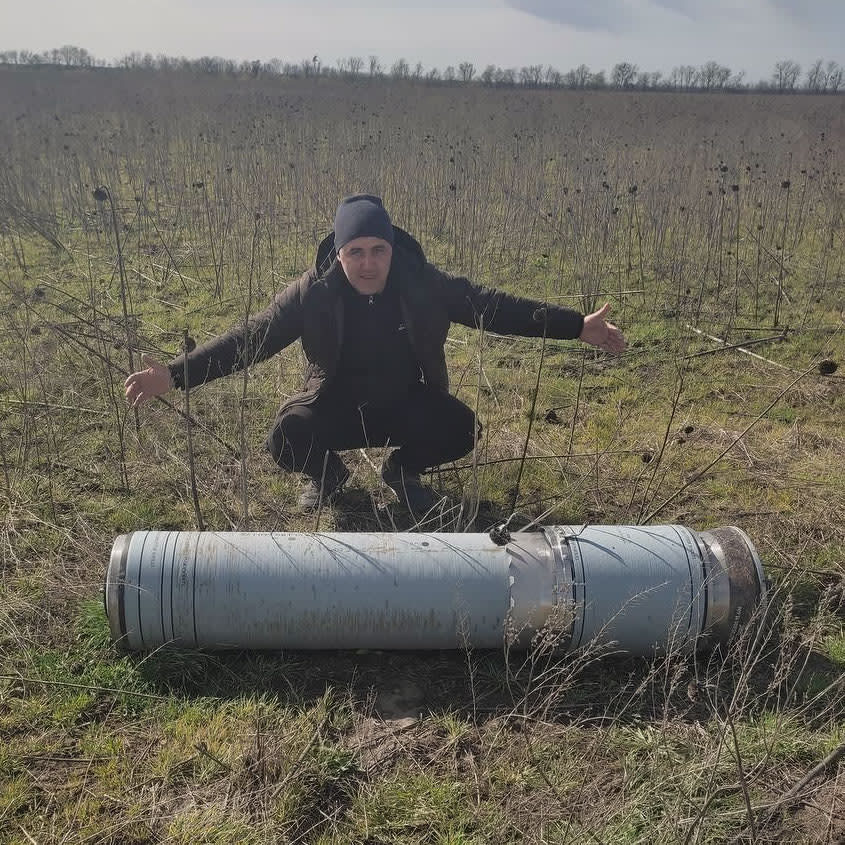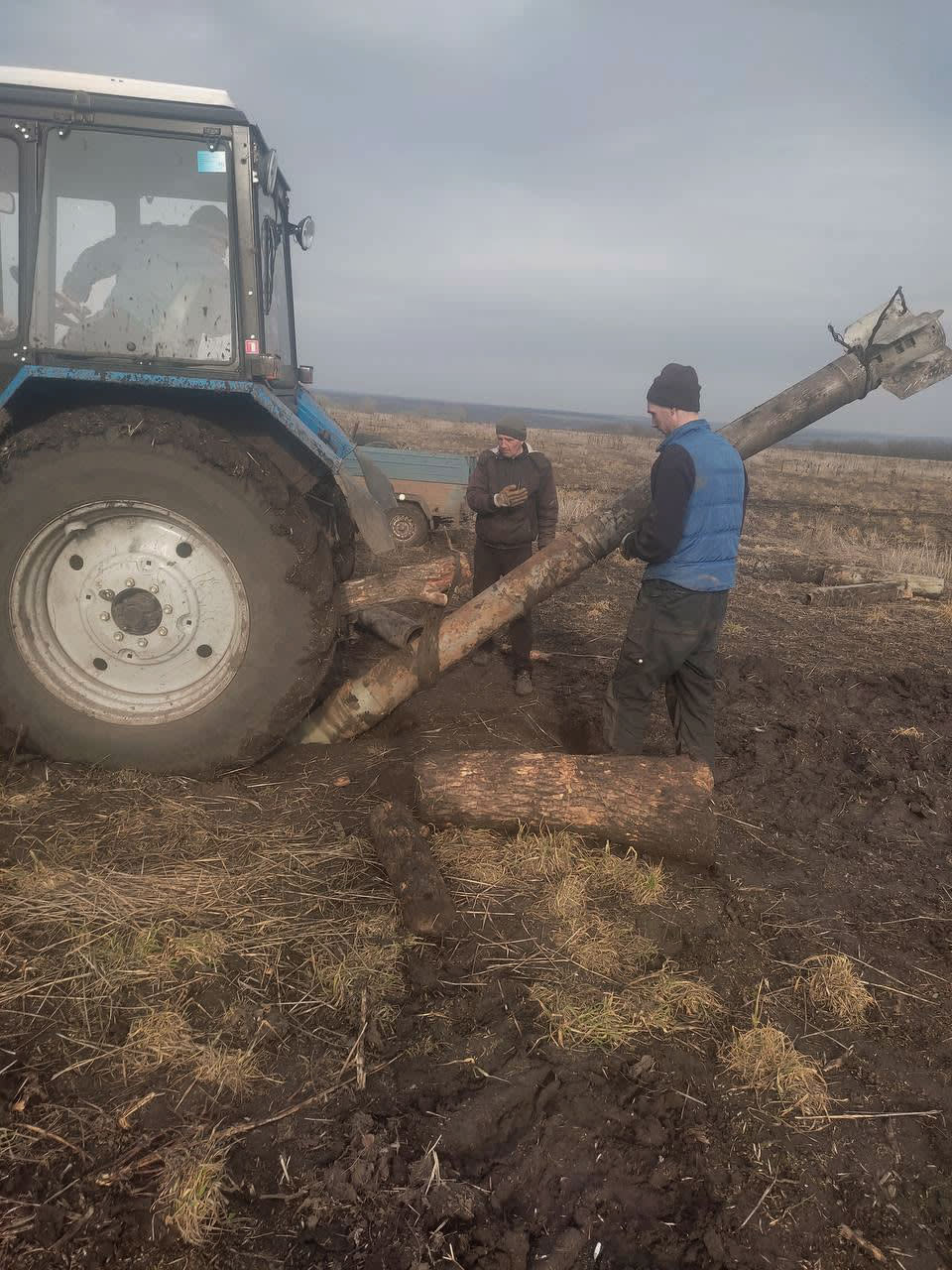Deadly Surprises From Putin Lurk Under These Family Homes

KHARKIV, Ukraine—Massive mine removal operations are underway in Ukraine as the country tries to repair some of the damage from the Russian occupation nearly one-and-a-half years into the war.
While Ukrainian officials de-mine entire towns and industrial buildings, some residents have been left with no choice but to clear shrapnel and bombs from their land, risking their lives in the process.
As of June 2023, a recorded 540,000 items of unexploded ordnance have been cleared from Ukraine, according to Alexander Lobov, a military engineer and mine action expert with the UN Development Programme (UNDP).
But despite this large number, the UN reported in December that almost 10.7 million people in the country required mine action services. While emergency services in Ukraine advise civilians to wait for their help before approaching the mines, some people are taking matters into their own hands.
That includes Sergey Teterdinko, a 34-year-old farmer from Zaliman, a village outside Kharkiv. A year before the invasion, Teterdinko bought over 6,000 acres of land to grow corn, sunflowers, barley, and wheat. The last two, he hoped, would break him into Ukraine’s grain industry. During the first year of owning the land, Teterdinko and his team ploughed and prepared the land, and in the second, they planted their first seeds.

But Russia’s invasion had an immediate effect on Teterdinko’s plans, with enemy forces occupying the village by early March.
“At that time, my emotions were incomprehensible. Even the equipment sound was already scary. I was worried for [my] child,” he told The Daily Beast. “Our lands, they were surrounded in half a ring, shelled from all sides, all the battles.”
Meanwhile, the land Teterdinko had worked so hard to prepare became a battle ground. “They [Russians] were digging trenches, and they started shooting. We immediately understood that we would not take the harvest. I felt helpless. All I could do was stand by,” he said.
When Zaliman was de-occupied on April 1, 2022, Teterdinko returned to assess the war’s impact on his land, which was covered in bullets, shrapnel, missiles, and unexploded bombs. The trenches—dug by Ukrainians and Russians—remained, hidden behind a cluster of trees.
“We felt we were going to lose everything,” Teterdinko said. Everything is completely damaged, a complete loss of everything. We took it [upon] ourselves to de-mine our fields, clear out unharvested, rotted crops. We just burned everything down.”
The farmer tried to contact Ukraine’s emergency services, which are leading de-mining efforts, and various non-governmental organizations involved in de-mining in Ukraine.
“We were waiting, waiting, waiting, but the fact is all organizations are working on de-mining of infrastructure, electricity, and gas facilities. They need to de-mine settlements first, for the population not to suffer,” Teterdinko said.
Teterdinko, felt he had no choice other than to de-mine his land himself, a job he began in February 2023 with the help of a drone and metal detectors. “We flew with the drone and searched for bombs. I thought there was nothing to lose,” he said.

Over five months, Teterdinko said he has removed 500 missile shells, and cleared over 3,450 acres of land. He is now working on another 3,570.
There have been several close brushes with death. Once while walking on a nearby dirt road, he almost stepped on a bomb. “Thank God, thank God, alive and healthy,” Teterdinko said. “I think God can see us.”
Like Teterdinko, Tarasov Roman, 43, a farmer from the village of Petrovske in the Izium district of Kharkiv, has been de-mining his land after receiving little help from Ukraine’s overwhelmed state services. Roman’s farm once grew vegetables and various crops, housed cows and chickens, but was overtaken by fighting at the beginning of the war.
By early March, Petrovske and the rest of Izium were occupied by Russian forces. At the time, Roman, his wife, and two children had escaped to the house of relatives in nearby Dmytrivka. But Roman was forced to leave his farm, set ablaze by the war, and most of his cows were killed by shelling.
Back to Square One
When Roman returned to Petrovske in September after it was liberated, he began to assess the damage at his farm and realized that there were unexploded landmines on the property.
“There were some plots with lots of them [bombs]. We dug a lot of shells from BM-27 Uragan [rocket], like six motors, reactive shells—a big one 30 centimeters in diameter and up to 2 meters long. I would say up to 100 shells, mines,” he told The Daily Beast.
Roman tried contacting emergency services for help, but has not heard back.
“This spring, I started to look at how to do it, as it was scary. But started doing something, as otherwise, we couldn’t work. I de-mined by myself, watched a lot of videos on the internet, connected with other farmers,” Roman said.
Life in the Underground Commune of Horrors Created by Putin’s War
He added that he also made connections with Ukraine’s emergency services, which sometimes come to inform him if he can remove the unexploded devices. “I was sending them photos, and they will answer what I can or cannot do with the explosive [and] shells—if I can come closer or not,” he said.
Roman believes that now he has de-mined most of his land. In spring this year, he planted sunflowers, wheat, corn, and barley. But he said it was not enough to make a living, and sometimes had to eat his chickens because he could not afford food.
Hidden Dangers
Although some brave farmers have taken matters into their own hands, for other Ukrainians, even attempting to remove bombs from their land could result in losing their homes and destroying those around them.
In Kamyanka, a small village outside of Izium, Alena Bolotnaya is still figuring out how she will remove six bombs from the well that stands near the ruins of her home.
Russian soldiers occupied the village for six months, leaving only destruction in their wake when they were forced out in September last year. On the second day of the invasion, Bolotnaya and her family were forced to move into their cellar, where they lived for more than a week before they were able to flee to Kharkiv.
“We returned to Kamyanka when we [Ukraine] liberated Izium at the end of October. All of this horror that we saw—we cannot express into words. Life before and after–everything we did, what we aspired to, everything remained under rubble,” Bolotnaya told The Daily Beast.“We had a beautiful flower bed. On it were handmade crafts from plastic bottles,” she said, before adding that when she came home, “There was a tank in this beautiful place. Russians killed our dog and covered it with a large metal bathtub.”
Russian soldiers had shelled Bolotnaya’s home and left it destroyed. There are now six unexploded bombs lying at the bottom of her well, which once provided fresh water for her and her family.
“The garden is all dug up by tanks. My husband reached the well with great difficulty because the well is in the middle of the garden. They were burrowing there. To see it now and remember what happened before the war is very painful. I’ve never seen my husband cry like that in my life,” said Bolotnaya.
She added that her husband, Zhenya, had worked two jobs to afford to build their house, and when the Russian soldiers came to Ukraine, everything the couple had worked so hard to build was gone.
Bolotnaya wrote a statement about the loss of her property to the police and fire department but did not contact emergency services to de-mine her well, because she said, most other residents of Kamyanka are dealing with the same deadly problem.
But the longer the bombs wait, the more likely it is that they will explode, destroying the well and everything around it.
“The biggest pain is that there are no photos, videos of your life before the war. It all burned down. And no one will return this memory to you for any money. These [home] are the first steps of your children, their first words. This is childhood graduation in kindergarten, at school,” she said. “No one will ever return that. It will remain only in our memory.”
Get the Daily Beast's biggest scoops and scandals delivered right to your inbox. Sign up now.
Stay informed and gain unlimited access to the Daily Beast's unmatched reporting. Subscribe now.


